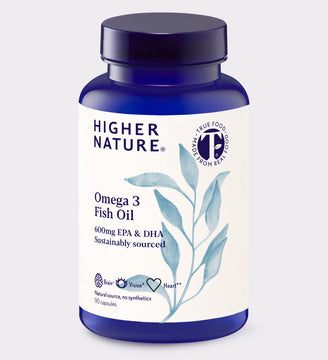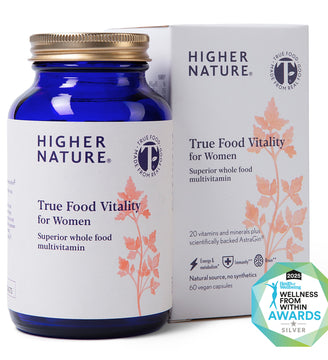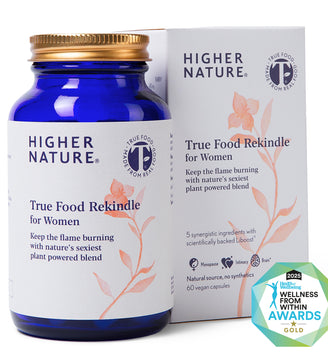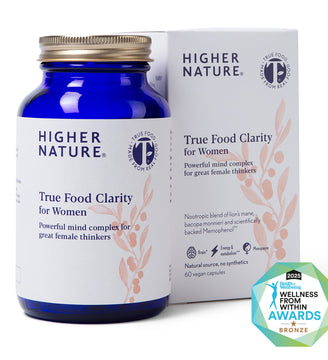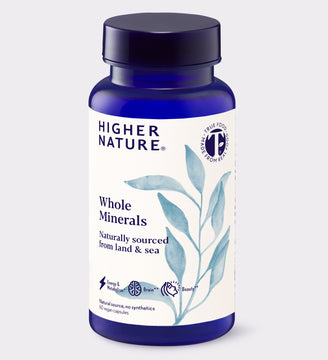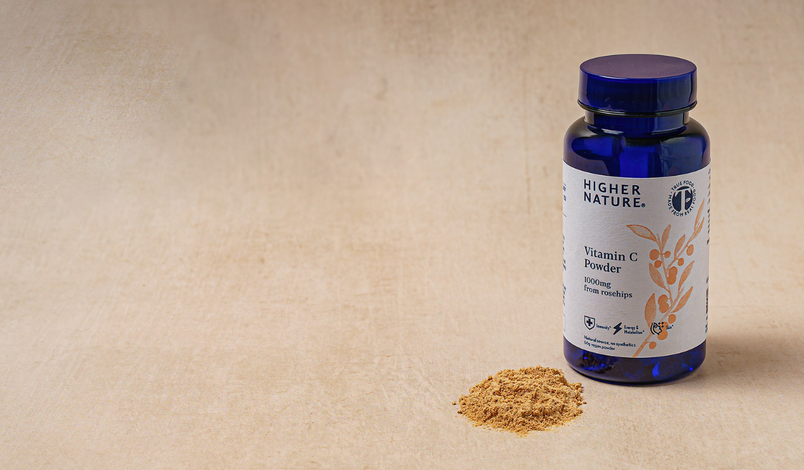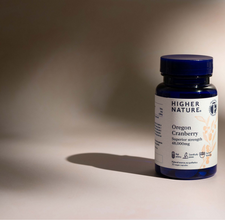
Are you suffering from chronic inflammation?
Elizabeth Houston - Higher Nature Nutritional Therapist - Dip BCNH mbant mCNHC
Most of us have heard the word inflammation in relation to conditions such as arthritis or inflammatory bowel disease, however there is a lack of understanding of what is actually going on in the body. The pathways involving inflammation are complex, I’ll try and keep it as simple as possible!
Many diseases are linked to high levels of inflammation such as:
Heart disease, stroke, cancer, diabetes mellitus, chronic kidney disease, non-alcoholic fatty liver disease, autoimmune disease, eczema, psoriasis and arthritis its reported that a huge 50% of all deaths are attributable to inflammation-related diseases.
Inflammation is not always a bad thing, acute inflammation is the bodies first response to an injury, infection or allergies this is short-lived and essential part of the body’s defence, inflammation is a sign your body’s immune response is working well. Simply put; we need the inflammatory response to fight infections and heal wounds.
Chronic inflammation however, persisting over weeks, months or years is due to a failure of the body’s immune mechanisms to maintain healthy balance and may be triggered by exposure to a microbial or viral infection, environmental toxins, heavy metals and pesticides, poor nutrition, stress, smoking, chronic insomnia and age-related processes.
An imbalance between the activity of the pro-inflammatory and anti-inflammatory cytokines (cell signalling molecules) is believed to affect the onset, course and duration of disease.
Some contributing factors to consider include:
Stress
Stress is said to be a common risk factor in 75%–90% of diseases. Studies suggest that high stress levels activate the inflammatory response in the brain.
Stress is a well-known trigger for conditions such as inflammatory bowel disease, eczema and IBS. Practices such as meditation and mindfulness may dampen gene activity associated with inflammation.
Stress also may adversely affect nutritional intake leading to poor food choices (we’ve all done it!) and nutritional deficiencies from both under-eating or over-eating occur which in turn, can create a vicious cycle of stress-eating promoting obesity or weight loss.
Obesity
Obesity increases the production of leptin (pro-inflammatory) and the reduction in adiponectin (anti-inflammatory) which seems to affect the immune system, this increase in inflammation partly explains the higher cases of illnesses such as cancers in obese patients.
Leaky gut
Another important trigger for low grade systemic inflammation is thought to be gut permeability (leaky gut). Leaky gut is thought to occur when the spaces between cells loosen allowing toxins and undigested particles to escape into the blood stream triggering an immune response. See this recent blog for more information on leaky gut: Leaky Gut - Could You Be Suffering From One? | Higher Nature
The most common medical treatment for inflammation is anti-inflammatory drugs which are effective symptom suppressors, providing pain relief, but do nothing to address the causes of the inflammation. Non-steroidal anti-inflammatory drugs (NSAIDs) work by blocking the production of these inflammatory substances, and while they are mostly very effective, they are not without side-effects, especially in the stomach where their use is are linked to stomach ulcers and gastritis.
How supplements can help:
Probiotics
The balance of gut microbes directly affects the pro-inflammatory and anti-inflammatory responses in the gut. Gut bacteria play an important role in immune function by protecting against pathogens, promoting the development and maintenance of the mucosal immune system and maintaining GI tract barrier integrity. Using probiotic supplements have been shown to mitigate systemic and local inflammation.
Essential fatty acids
Studies have shown participants taking omega 3 fatty acids high in EPA and DHA from oily fish have a reduction in the inflammatory cytokine interleukin 6 (IL-6). Omega 3 oils from fish are far more efficient than ALA found in plants. This is partly due to the complex pathways involved needed to convert ALA into EPA and DHA, with some evidence reporting less than 15% conversion. There are many studies confirming the benefits of fish oil supplementation for inflammatory conditions such as arthritis, eczema, inflammatory bowel disease and asthma. Most people are not getting sufficient levels of these essential fatty acids through diet so supplementation with high strength EPA and DHA is recommended.
Turmeric
The bright yellow pigment of the spice turmeric contains active compounds curcuminoids which show strong anti-oxidative and anti-inflammatory activities. Several meta-analyses of clinical studies show that turmeric extracts and/or curcuminoid products can help reduce symptoms such as of inflammatory arthritis, with some trials showing it to be similarly effective to anti-inflammatory drugs. Curcuminoids are highly recommended in both osteoarthritis and rheumatoid arthritis as well as in postoperative inflammation.
Boswellia
Frankincense may be the ultimate gift for an arthritic friend. More precisely, Boswellia serrata, also known as Indian Frankincense, is proving to be a very powerful natural anti-inflammatory agent. One study found Boswellia significantly reduced the serum levels of high-sensitive C-reactive protein, a potential inflammatory marker associated with osteoarthritis of the knee. Boswellia can be found in combination with the popular glucosamine.
MSM
MSM, which stands for methylsulfonylmethane, is a source of the essential mineral sulphur. Sulphur is involved in a multitude of key body functions including pain control, inflammation, detoxification and tissue building. Extraordinary results are starting to be reported in terms of pain relief and relief from arthritis. One possibility is that sulphur deficiency is far more common than realised.
One study at UCLA School of Medicine in California found that on 2250mg of MSM a day, patients with arthritis had an 80% improvement in pain within six weeks compared with 20% who had taken dummy pills.
Since sulphur is an essential ingredient in cartilage formation, as well as inflammatory response, this may explain why MSM can be helpful. A number of small trials have reported consistent relief from pain and inflammation in a variety of conditions including back pain, joint pain and muscle pain.
Quercetin
This is a potent anti-oxidant found in onions, broccoli, squash, red grapes and citrus foods. It works with Vitamin C and E to protect against free-radical damage and also has an anti-inflammatory effect by inhibiting the enzymes that produce pro-inflammatory prostaglandins.
Quercetin also inhibits the release of histamine which is involved in inflammatory reactions.
Dietary recommendations
Long-term diets rich in legumes, vegetables, fruits and nuts; a higher intake of plant over animal foods with a preference for low-fat fermented dairy and fish; while avoiding strong alcoholic drinks, processed high-fat meat and soft drinks, have a potential to prevent intestinal inflammatory processes via the gut microbiome (Bolte at al 2020).
- Many foods contain substances that have shown anti-inflammatory abilities, these include oily fish, ginger, garlic, onions, watercress, turmeric, berries, cherries, olive oil, tomatoes, green tea, broccoli, coffee, grapes and mushrooms.
- General advice is to include a wide range of different coloured fruit, vegetables and salads. Some nutritionists suggest 30 different plants per week.
- The typical western diet of high red and processed meat, sugar and refined carbohydrates is linked to an increase in chronic inflammation so these should be kept to a bare minimum.
- Avoid toxins where possible, filter tap water, buy organic, use natural cleaning and personal products, avoid plastic water bottles etc.
- Increase fibre intake- regular bowel movements are essential to eliminate toxins.
- Increase probiotic rich foods such as kefir, yogurt, tempeh, miso, sauerkraut, kimchi, kombucha and apple cider vinegar (with the mother).
Please note some supplements may interact with certain medications , please contact nutrition support for further advice.
Laura A Bolte, Arnau Vich Vila, Floris Imhann , Valerie Collij, Ranko Gacesa, Vera Peters, Cisca Wijmenga , Alexander Kurilshikov, Marjo J E Campmans-Kuijpers, Jingyuan Fu, Gerard Dijkstra Alexandra Zhernakova, Rinse K Weersma Long-term dietary patterns are associated with pro-inflammatory and anti-inflammatory features of the gut microbiome 2021


